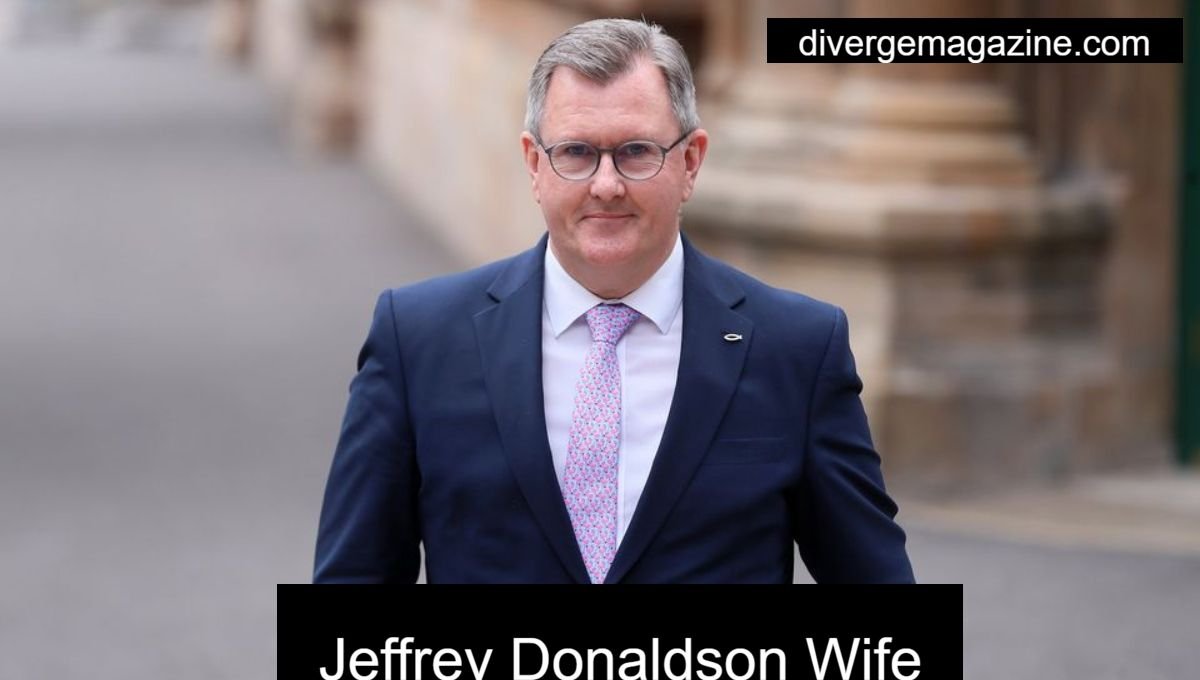With the unexpected resignation of Sir Jeffrey Donaldson as chief of the Democratic Unionist Party, there may be a primary shift inside the political landscape of Britain and Ireland. The sudden resignation of Sir Jeffrey Donaldson, the leader of the Democratic Unionist Party (DUP), after ancient allegations casts a shadow at the future of unionism in Northern Ireland and the sensitive strength-sharing balance. We can see that Sir Jeffrey’s departure is a critical second for British and Irish politics as we observe his life and career.
From Mourne, to the Halls of Power
Sir Jeffrey was raised in a traditional rural Northern Irish town called Kilkeel. The early years of his life in Mourne, with a large, loving family, and a focus on community, laid the foundation for everything that followed. The Troubles, which impacted on his future and his life, disrupted the peace of his childhood. The Provisional IRA’s murder of his RUC constable cousin was a pivotal event that forever changed him.
His involvement in unionist activism was a major part of his youthful life. His commitment to unionist causes was solidified by joining the Orange Order, the Young Unionist Movement, and then serving in the Ulster Defence Regiment. These experiences were a prelude to an extensive and distinguished career in politics, first with the Ulster Unionist Party and then with the DUP where he rose to the position of leadership in 2021.
Leadership Amidst Turmoil
Sir Jeffrey’s DUP leadership tenure came during a turbulent time. Sir Jeffrey’s leadership was defined primarily by the DUP’s staunch resistance to the post Brexit trading arrangements. Unionists viewed this as creating a border de facto in the Irish Sea. This culminated in the collapse in 2022 of the Stormont Powersharing Institutions, which underscored the unionist discontent.
His ability to balance pragmatic governance with principled viewpoints was demonstrated by his role in steering the party to the negotiation table and bringing the parties back together. This balance was critical in restoring Northern Ireland’s political institutions, and highlighted the complex challenges that unionist leadership will face in a post Brexit landscape.
A Legacy in Limbo
Many questions remain unanswered by the abrupt end of Sir Jeffrey’s career in politics. During his nearly four decade-long career in politics, he witnessed significant changes in Northern Ireland’s dynamics. These blanketed the evolution of Northern Ireland’s peace manner and unionism’s converting nature in response to Brexit. The reality that he became awarded a knighthood for his political provider in 2016 is a testomony to his determination and impact on his constituents.
His resignation within the face of allegations, and the management vacuum that has observed in the DUP, come at a crucial time. The upward push of Sinn Fein in Northern Ireland and within the Republic of Ireland as a major political force provides a new layer of complexity to destiny unionism. The DUP’s reaction to those demanding situations and the leadership transition after Sir Jeffrey’s go out will have a huge impact at the political discourse of the region.
A Horizon of Uncertainty
The political panorama of Northern Ireland, and its courting to each Great Britain and the Republic of Ireland are at a crossroads as the DUP struggles with its internal dynamics. In the context of Sinn Fein’s upward thrust and ongoing debates approximately Irish cohesion, the imminent leadership contest inside the DUP highlights the uncertainty and volatility that characterizes modern Northern Irish politics.
Sir Jeffrey Donaldson’s resignation is extra than just the give up of his political career. It has a ways-achieving outcomes for Northern Ireland’s destiny and its function within the United Kingdom of Ireland. The legacy of Sir Jeffrey Donaldson’s tenure, and the direction unionist politics are taking remain intensely speculative and interesting as the DUP tries to navigate through these turbulent waters.
